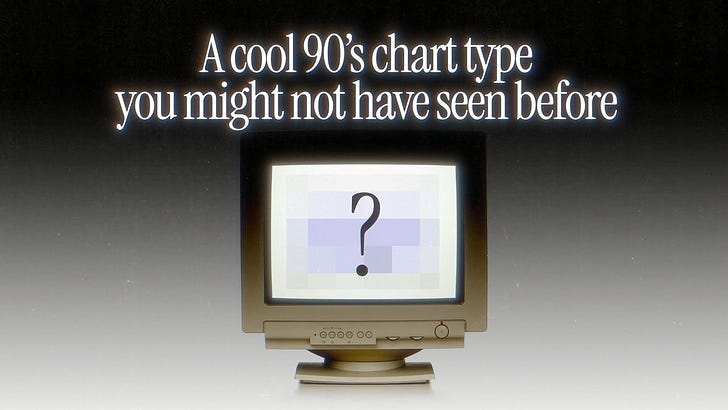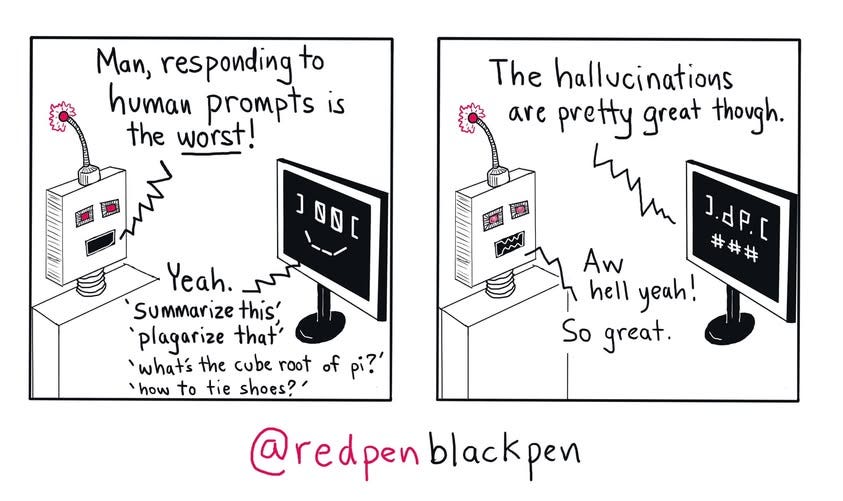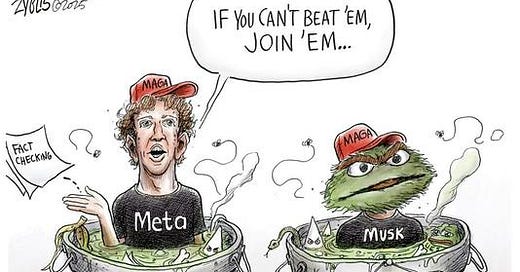This from the US National Science Foundation: Updates on NSF Priorities (19 April), news that the Foundation is going to terminate ongoing grant funding for projects which don’t match the new priorities (which emanate from the new President) :
13. Are you still funding research on misinformation/disinformation?
Per the Presidential Action announced January 20, 2025, NSF will not prioritize research proposals that engage in or facilitate any conduct that would unconstitutionally abridge the free speech of any American citizen. NSF will not support research with the goal of combating "misinformation," "disinformation," and "malinformation" that could be used to infringe on the constitutionally protected speech rights of American citizens across the United States in a manner that advances a preferred narrative about significant matters of public debate.
Similar to the baseless accusation of political bias made by Meta when it terminated it’s 3rd party fact checking system in the US, this statement associates misinformation research with free speech infringement.
On the one hand, I can see that excess of control over information under the guise of “misinformation” could be free-speech infringing. Laws, such as that enacted in Greece against fake news, risk abuse by governments when they are combined with the power to arbitrarily claim what is true. (In related news, the Russian news agency TASS has just launched a fact-checking unit, which promises to be far from independent.)
However, If the assumed context for the NSF statement is speed on social media, this seems to confused freedom to speak with freedom to be heard, or to avoid contradiction.
By their works ye shall know them. There’s a team crowdsourcing a list of terminated NSF grants (Bsky thread by Noam Ross on this). A search for “misinformation” shows up seven grants so far terminated. Here are their titles:
Using Data Science to Quantify the Impact of Misinformation, Mistrust, and Other Key Psychosocial Factors on Vaccine Hesitancy Among Vulnerable People Experiencing Psychopathology
Investigating and identifying the heterogeneity in COVID-19 misinformation exposure on social media among Black and Rural communities to inform precision public health messaging
LatiNET, a Multilevel Social Network Model to Examine and Address SARS-CoV-2 Misinformation in Low-Income Latinx Communities.
Influence of Social Media, Social Networks, and Misinformation on Vaccine Acceptance Among Black and Latinx Individuals
Cancer misinformation on social media and its correction
Cancer Misinformation and Use of Complementary and Alternative Therapy (CAM) among Patients with Cancer.
An inoculation theory-based messaging intervention addressing misinformation about HPV vaccine on social media: The Inoculate for HPV Vaccine randomized controlled trial
This is millions of dollars of research, already underway, which will now be stopped midway. Unsurprisingly, as a researcher I view this as both wasteful and an overreach by executive power. Governments can set priorities for grant funding, but if they have set up a systematic process for evaluating what research to fund researchers they shouldn’t intervene mid-grant except in the most exceptional circumstances.
Further up on the Updates on NSF Priorities page is this:
10. Is there a list of words I should be avoiding?
There is not a list of words. Investigators should focus on Intellectual Merit and Broader Impacts for proposals in a way that is consistent with NSF priorities.
You can make up your own mind about how these projects were most likely selected for termination.
Also, this
Now, since yesterday 22 April, the whitehouse.gov pages on covid highlight the lab leak theory of covid’s origins:
The pages make the case that Anthony Fauci (chief medical advisor to the president, 2021-22) suppressed “the truth” about covid’s origins, pushing social media companies such a Meta to suppress dissent on the grounds of public health.
Going back to check, fact checkers themselves seemed to have called this correctly all along. Here’s FactCheck.org, as US based fact checker, with Fact Checks from early 2021:
May 2021: The Wuhan Lab and the Gain-of-Function Disagreement
June 2021: The Facts – and Gaps – on the Origin of the Coronavirus
They are clear and consistent: this is an area where we cannot be certain, and the lab leak hypothesis is possible but unlikely.
Here’s a fact check with a stronger claim, but it is directed at a debunked variant of the lab leak hypothesis (that the coronovirus contained genetics showing deliberate insertions from HIV) , not lab leak in general:
My own view is informed by this (very lengthy) report of a (very thorough) debate : Practically-A-Book Review: Rootclaim $100,000 Lab Leak Debate (subtitle: “I watched 15 hours of COVID origins arguments so you don't have to - but you should!”). ACX is an independently minded, science educated, wicked smart, commentator and if he swings against the lab leak hypothesis (as did the prediction market following this debate), that’s good enough for me.
What I’m not clear on, is why the issue is such high stakes in the US. Here’s Andrew Sullivan, a right wing and and decisively independent, as well as anti-Trump, commentator: Why Did This Man Mislead Us? (“The disturbing tale of how the scientific establishment took aim at the lab leak theory”). Like the Whitehouse, and in contrast to the fact-checkers, Sullivan portrays the lab leak theory as far more certain than it is (not just more likely, but decisively established).
I don’t really understand where this is coming from. The lab leak may be true. It may legitimise action against China (which many in the US want to take anyway) or allow the current administration to victimise people from the previous administration, but I don’t really get why the strength of feeling, such that it seems to require confidently asserting which is at best uncertain.
I find it easy to believe that, during a time of unprecedented crisis, social media companies such as Meta bowed to government pressure, and caught some reasonable dissent in the net. In itself this hardly warrants the reaction against fact-checking, against misinformation research, or public health.
I guess I could better read the exact contours of this by becoming a more preoccupied observer of US politics, but the state of US politics doesn’t exactly inspire me there. At some point the signalling value of these positions overtook the facts of their actual reasonableness as the most important thing. In other words, they became politicised.
The trajectory of how it happened may be unimportant. Now lab leak has been politicised the Whitehouse has to confidently assert what it can’t know is true, and now misinformation research is tainted as being part of a censorship-industrial complex (which doesn’t exist), NSF has to terminate grants which use this language.
The historical details of how this happened may be besides the point, but we urgently need to understand how to depoliticise politicised issues. It may be hard to have a conversation about healthy epistemic communities with those who think conversations about healthy epistemic communities are suspect, but it certainly less doomed to failure than having the conversation without them.
Updates on Community Notes
Coming to Meta in 2026 Says their Chief Global Affairs Officer
Waitlist is open (via platformer)
To sign-up, you need to be based in the US, be over the age of 18, have a Meta account that's more than six months old and in good standing and have either a verified phone number or two-factor authentication. Meta says contributors will start to be taken off the waitlist once the Community Notes beta launches. The company hasn't given a hard date for the launch, but does mention that Community Notes will be phased in "over the next few months."
The Case for Facts
"This rigorous fidelity to facts — to gathering evidence before reaching conclusions — is the true meaning of objectivity in journalism. It's not about being neutral or passive, but about being relentlessly committed to uncovering what's true and accurate. When democracy is under threat, this disciplined approach to truth-seeking becomes more crucial than ever. It's what distinguishes journalism from content production or social media commentary. "
Angie Drobnic Holan, 10 Feb 2025 : The Case for Facts : Verifiable evidence remains journalism’s foundation, despite mounting attacks on the press
A nice quote
“argumentative discussions can also be harnessed for a kind of excoriating mutual improvement.”
The New Libertarian Elitists : What’s behind the dangerous new notion that democracy should be left to the well-educated. Henry Farrell Hugo Mercier Melissa Schwartzberg (2023). https://democracyjournal.org/
PODCAST: Hasok Chang on Epistemic Iteration (Dec 2023)
"We get this instinct that true science must start from a firm foundation. Time and again, that's what I see NOT happening in the practice of science. We start from where we stand. The foundation is never indubitable, the foundation is provisional."
Foundationalism is one of those things which was so obvious it took the naming of it for me to realise.
Link: The HPS Podcast Hasok Chang on Epistemic Iteration (Transcript)
PAPER Debating with More Persuasive LLMs Leads to More Truthful Answers
From the abstract…
…two LLM experts each argue for a different answer, and a non-expert [either a non-expert LLM or a human] selects the answer. We find that debate consistently helps both non-expert models and humans answer questions, achieving 76% and 88% accuracy respectively (naive baselines obtain 48% and 60%). Furthermore, optimising expert debaters for persuasiveness in an unsupervised manner improves non-expert ability to identify the truth in debates. Our results provide encouraging empirical evidence for the viability of aligning models with debate in the absence of ground truth.
Khan, A., Hughes, J., Valentine, D., Ruis, L., Sachan, K., Radhakrishnan, A., ... & Perez, E. (2024). Debating with more persuasive llms leads to more truthful answers. arXiv preprint arXiv:2402.06782.
JOB! 30 month Postdoctoral Researcher on digital democracy.
… in Birkbeck, University of London - School of Psychological Sciences, working with Ulrike Hahn on the grant PERYCLES: Participatory dEmocRacY that sCaLES
Are you passionate about digital democracy? Birkbeck, University of London, is looking for a highly motivated Postdoctoral Researcher to join a dynamic, research project on a full-time, fixed-term contract this Spring.
Joining the School of Psychological Sciences, you will be working on a Horizon Europe project on digital democracy that focuses on threats to inclusion and safe participation in deliberation, including phenomena such as self-censoring, epistemic silencing, misinformation, and flooding the zone.
As Postdoctoral Researcher you will be involved in conducting both empirical research (survey and behavioural experiments) and simulations with agent-based models.
Deadline: 1st of May 2025.
And finally…
Two newsletters in two days! Catch up on yesterday’s : The End of History and the Last Man. Today’s post felt urgent, with some of the events of the last 30 hours. Yesterday’s had a different kind of urgency, with the events of the 30 years since the book publication.
In general, I try never to be relevant to contemporary events, so please excuse today’s post as an accident. My normal writing schedule will now resume, which is to say:
END
Comments? Feedback? Handy hints for depoliticising topics? I am tom@idiolect.org.uk and on Mastodon at @tomstafford@mastodon.online





















